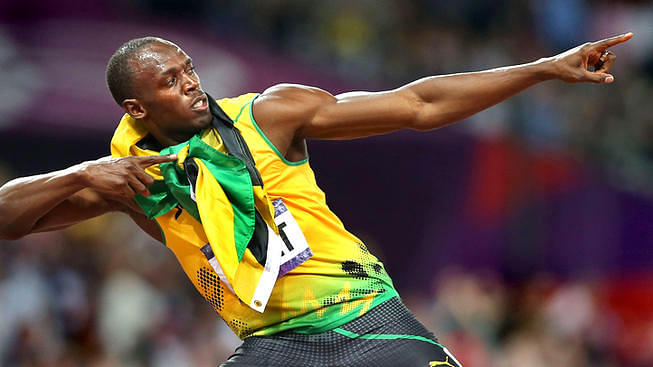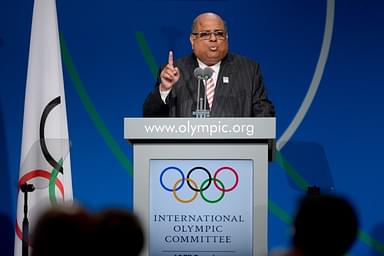Usain Bolt will lose one of his 9 Olympic gold medal as his Jamaican teammate for the 4×100 relay event, Nesta Carter failed dope test. The International Olympic Committee (IOC) in a press release said that Carter tested positive for methylhexaneamine. This a banned stimulant which was found in the blood samples from the 2008 Beijing Olympics.
Bolt and Carter were teammates for the 4×100 relay event in the Beijing games which also included Michael Frater and Asafa Powell. The IOC statement read that the Jamaican team is disqualified. Further they would be required to return corresponding medals, medalist pins and diplomas.
The relay title was significant in Bolt’s career as it completed the first of Bolt’s three gold medal sweeps in the 100, 200 and relay at three straight Olympics.
The suspension of the Jamaican team will result in Trinidad and Tobago getting the gold in 2007, followed by Japan and Brazil who earned silver and bronze medals respectively.
Carter’s Claim
Carter testified by videoconference to an IOC disciplinary hearing held in Lausanne on October 17.
In the IOC ruling it was stated that Carter agreed to the fact that he took those supplements as advised by his coach Mr. Stephen Francis.
The athlete in his defense said that he had given many dope samples whilst he was taking Cell Tech and Nitro Tech before 2008 Olympic Games and he was never tested positive for the proscribed drug.
“He therefore did not believe that these supplements could contain prohibited substances. He did not understand how methylhexaneamine could have been found in 2016.”
The three member IOC panel noted that methylhexaneamine was not specifically mentioned in the list of prohibited substances. However it fell within the scope of the general prohibition of stimulants having a similar chemical structure or similar biological effect as the listed stimulants.
Carter can challenge this sanctions in the court of Arbitration for Sports.
In 2016, when Carter’s B-sample tested positive, following a re-test, Bolt said: “It’s heartbreaking [the positive test]because over the years you’ve worked hard to accumulate gold medals and work hard to be a champion … but it’s just one of those things. Things happen in life, so when it’s confirmed or whatever, if I need to give back my gold medal I’d have to give it back, it’s not a problem for me.”






